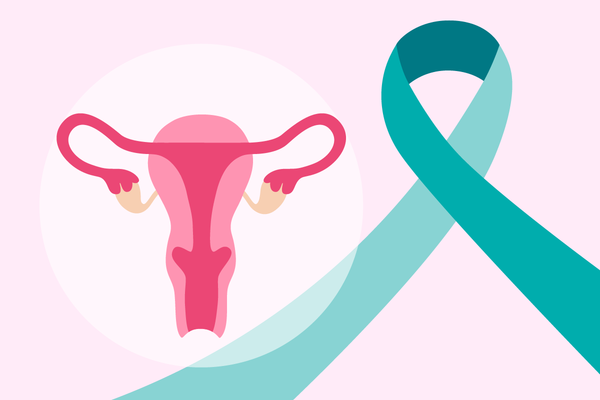By Joni Alvarez
I always thought that cancer would happen further down the road, at a more “appropriate" time in my life. Getting cancer my 40s? I thought that only happens to people you hear or read about. I wasn't supposed to be one of those people.
Out of the blue, I started feeling extremely fatigued and developed constant stomach cramps and headaches. I had no idea that what I thought were physical nuisances were symptoms of cancer. I finally gave in and saw my gynecologist. Six weeks after my initial symptoms, an ultrasound and biopsy were performed, and I was diagnosed with Stage IIB cervical cancer, which meant the cancer had spread into the tissues next to my cervix.
For me, the words "You need a biopsy" were more shocking and devastating than "You have cancer." In the four long days between biopsy and diagnosis, I mentally prepared myself to fight and do whatever my doctors said I had to do to survive. When I finally heard the diagnosis, I was prepared for the battle.
One morning I had a free and normal life. The next morning my arm was attached to an IV and pole that would become a frequent companion over the next few months. My life suddenly included machines, medicines and terminology that I'd never heard of and never expected to be part of my everyday existence.
Part one of my treatment was six weekly cycles of Monday morning chemotherapy treatments and Monday through Friday radiation treatments. I'd sleep all weekend then start the weekly routine again.
Part two of my treatment was two radiation implant procedures (spaced a couple weeks apart). With each procedure, I spent three days in the hospital, unable to move or leave my bed, while the radiation did its work. Honestly, those hospital stays were the most trying part of the whole treatment program for me. With chemo and radiation, I was exhausted and didn't feel my best. But with implant procedures, the exhaustion combined with isolation and immobility were trying mentally, physically and emotionally. I may have been frustrated with my level of exhaustion during chemo and radiation but at least I had my freedom. I learned to appreciate that freedom and the privilege of the choices that come with it. I realized that they are a bonus that comes with having good health.
The end of my treatment wasn't the end of cancer's effect on my life. I had a pulmonary embolism toward the end of treatment and also required further treatment to repair radiation damage. Nonetheless, I'd rather put up with cancer's after effects than have lost my battle against cancer.
Cancer treatment is not physically or mentally easy but I truly believe my treatment team—doctors, nurses, technicians and staff—made the experience easier. I was very fortunate to be their patient. Combined with the support of my family and friends, they kept my spirits up and ensured the success of my treatment.
My advice? See a doctor about any discomforts or unusual symptoms that last more than a week. Let your doctor judge the severity of these issues and how to deal with them. Follow through with all of your medical and specialist appointments. Take every test they recommend. It sounds like a lot of time but it's worth it.
And, remember that every cancer survivor's story is different. Remember that especially when reading or hearing cancer survivor stories—even this survivor's story.
We've all heard stories about people who return to normal life and work at full speed within days of completing treatment or even during treatment. I was disappointed when I couldn't live up to that standard. My recovery time was longer than I expected but I now know it was the right amount of recovery time for me.
I've grown intellectually, mentally and emotionally from experiencing the process of cancer treatment. I just wish I never had the cancer part of the experience.




